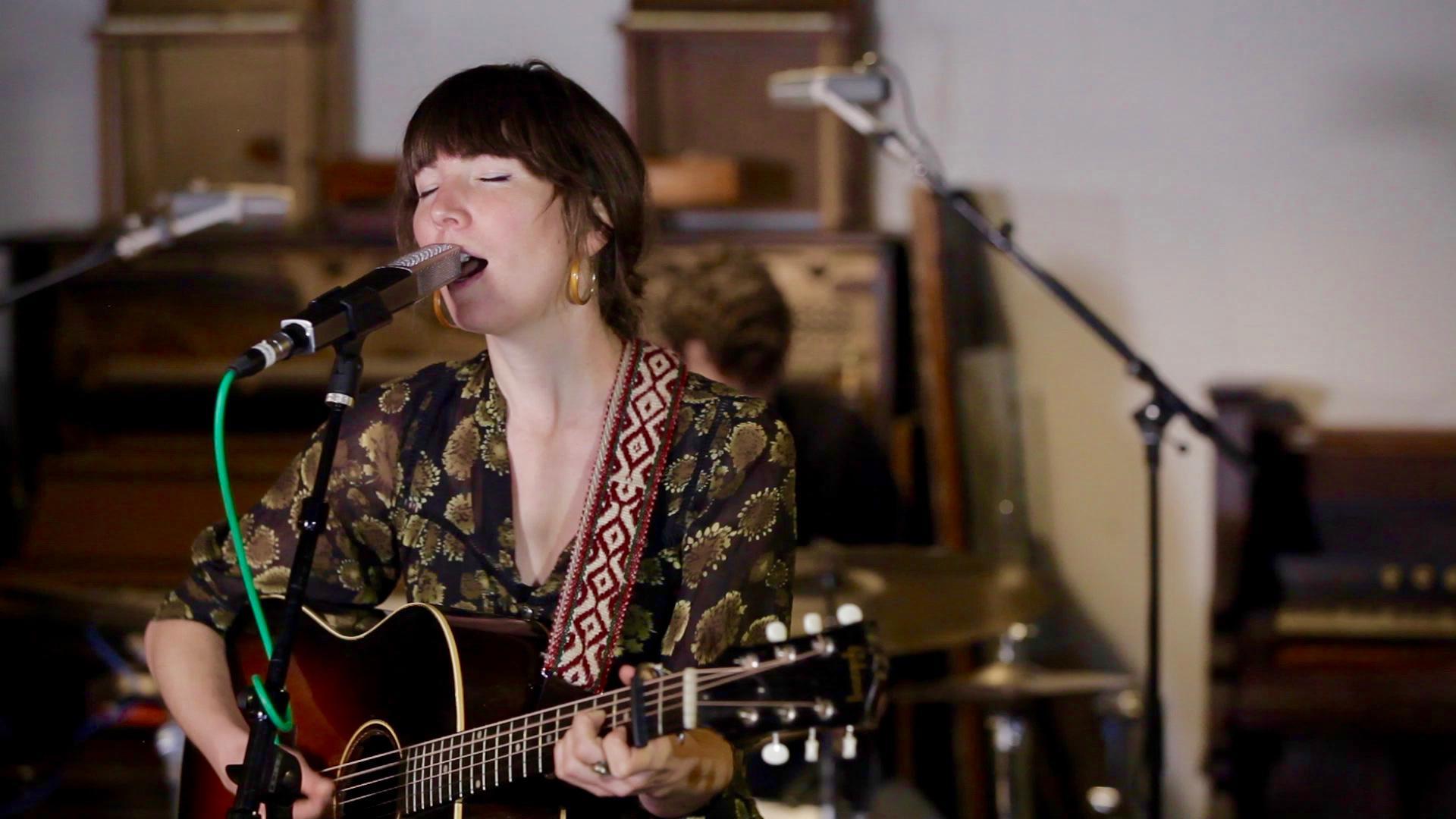Over the course of the past decade, Anna Tivel has established herself as one of the strongest lyricists in folk music. In her songs, deep attention to detail is paid to the most mundane of objects and characters inhabit vivid and dynamic worlds. It’s a rare quality that gives her compositions a literary flair and invites intense attention from listeners.
On her newest record, "The Question," Tivel teamed up with a collaborator in producer Shane Leonard, who shares her detail-obsessed vision. Leonard is as inventive with sound as Tivel is with the written word, and the result is one of the most ambitious recordings of 2019.
Anna Tivel's new record "The Question" is out via Fluff and Gravy Records on April 19. She performed a session for opbmusic at Type Foundry Studio in North Portland and chatted with us about the new album. Check out the videos (it's a playlist of three songs above), listen to our full interview, and read excerpts below.
Interview Excerpts
Jerad Walker: Can you tell me about the title track? “The Question” only has one question in its lyrics but it doesn’t seem to be the actual point of the song. What’s the protagonist searching for?
Anna Tivel: A lot of things. That song started out as a poem. In New York City, I was walking around and I looked up into a window, and I saw somebody who was maybe a man putting on a wig and makeup. That city is always really vibrant and inspiring to me — I'm from a small town. I think it looked so beautiful late at night and it also looked so lonely. I think a lot of the songs on this record, and that song in particular, are sort of about the struggle of figuring things out, whether it's how you really feel inside of yourself or questions of identity or of country. In that song, it comes out as trying so hard to just feel settled and finally maybe the crux of it is that all that time searching and struggling is just as beautiful, even if it's hard as any sort of actual answer that you get to.
JW: “Anthony” is such a sad song, but your lyrics are just so incredibly descriptive and vivid that you almost forget the seriousness of the content. You’ve got this burning building coming down around someone.
AT: That song — I lived next door to an artist couple for a while, and they had a big house fire, and they lost this beautiful work of art house that they built together. And then they built it up again … I've always kind of carried that story around and wanted to write it somehow, and I think that was the impetus for it. And [I was] also kind of thinking about how we create our lives as though things will last, or we just hope things will last, and sometimes it just gets taken away real fast. The feeling of that kind of came into that song.
JW: The detail is amazing. Your writing has a real literary quality to it.
AT: Thank you.
JW: I think you set yourself apart from most songwriters in that you really seem to revel in the dirty and overlooked everyday details of life. On this album, you take things like an alleyway, or a packrat’s junky side yard, or a desolate stretch of highway and you breathe life into it. It seems that really enjoy that stuff almost as much as overarching narrative. Is that true?
AT: Yeah, totally. I feel like for every one song that makes it on a record I have twenty lame songs that are just lists of junk. I don't know why I — there's so much life in that stuff and there's so much story to some piece of trash or somebody's bits of a shambled life that are happening. Yeah. So sometimes it goes well and sometimes it's just things and no story ever happens and I have to get rid of the song.
JW: How do you mine that stuff? Do you keep notebooks?
AT: Yeah, notebooks and the computer a lot and voice memos and backs of receipts and all sorts of scribblings everywhere.
JW: I wanted to ask you about “Worthless.” You sound downright pissed off on “Worthless.” That’s a real clenched fist of a song, and I don’t think I’ve ever heard you write something like that. Maybe I missed it in the past, but that sounds new. Where did that come from?
AT: I tour a lot and I listen to the news a lot [while on the road], and I think there’s a lot of clenched fists happening at this time. That song, I think, kind of came from thinking about all the ways that we label each other. You hear over and over again how hard it is to crawl out from under that and not become the thing that you’ve always been called. I think that song is kind of coming from that angle of trying to shuck away a label that’s been holding you down and holding you down.

